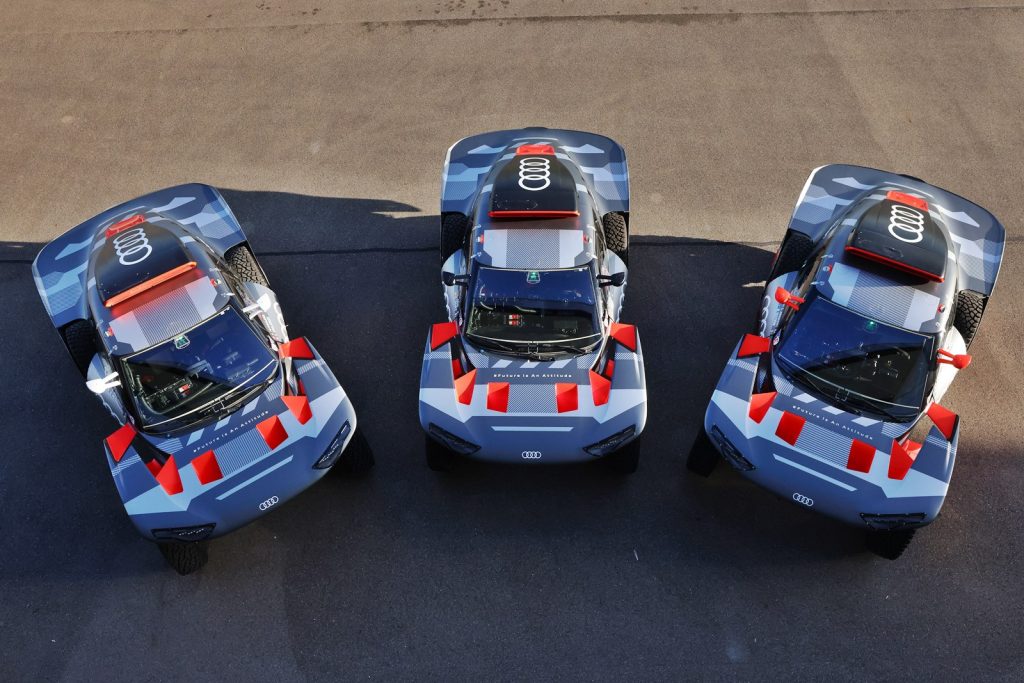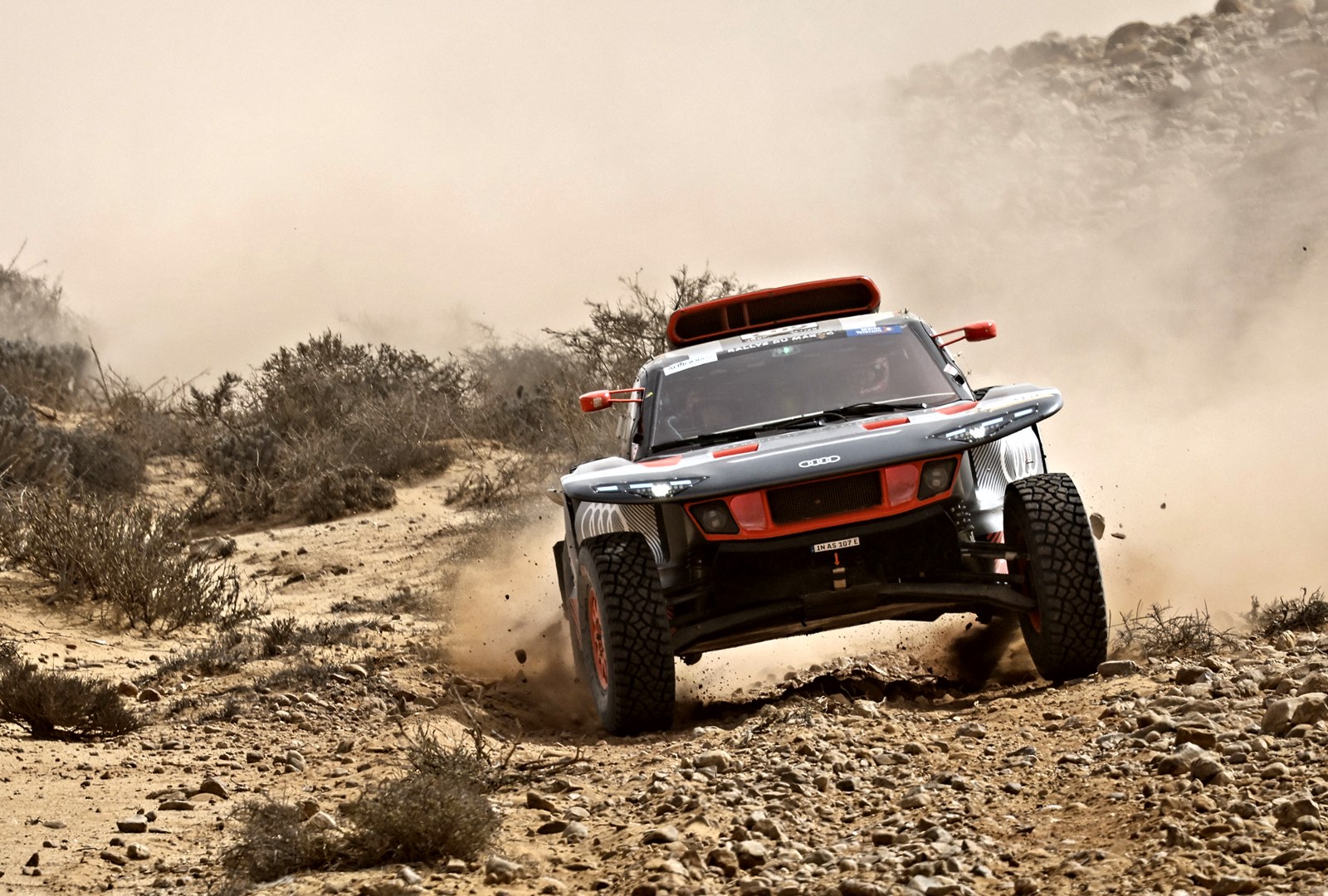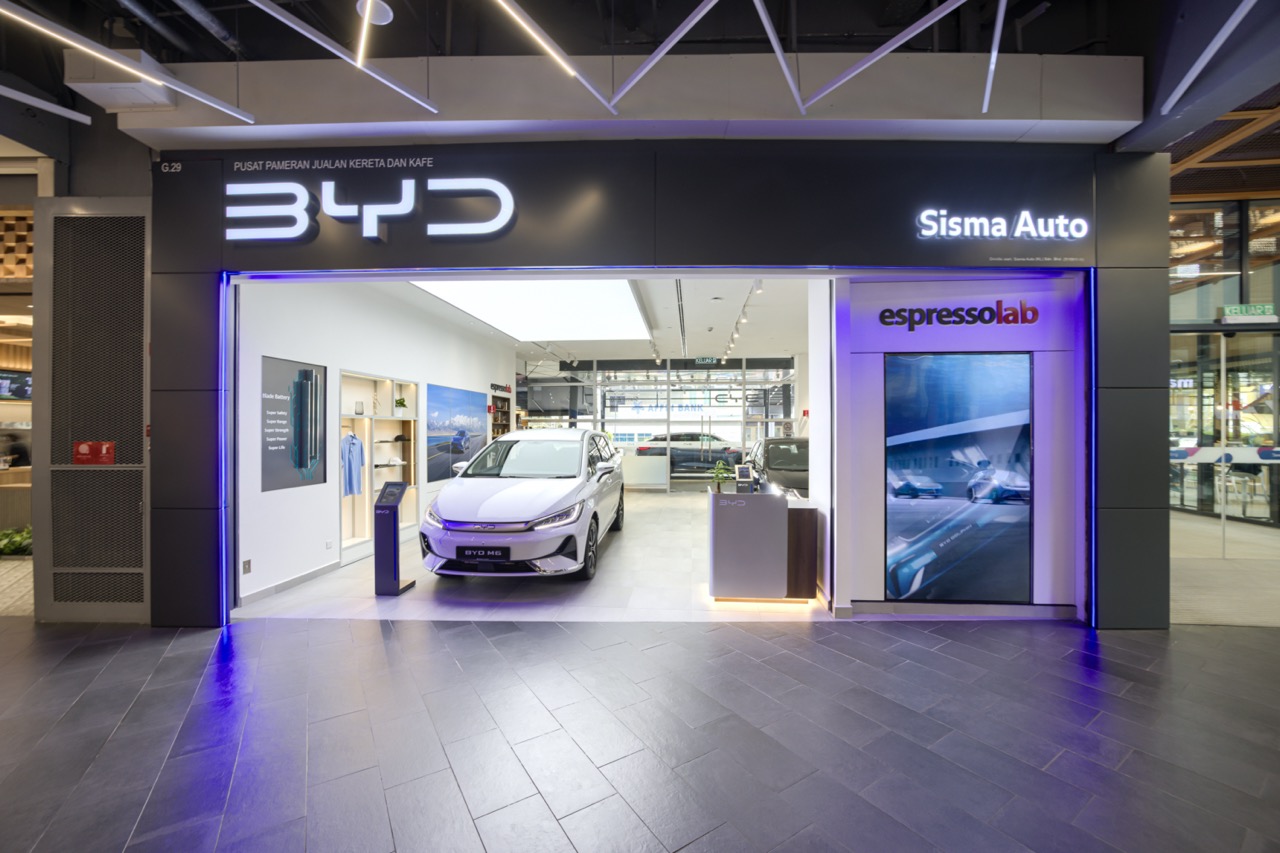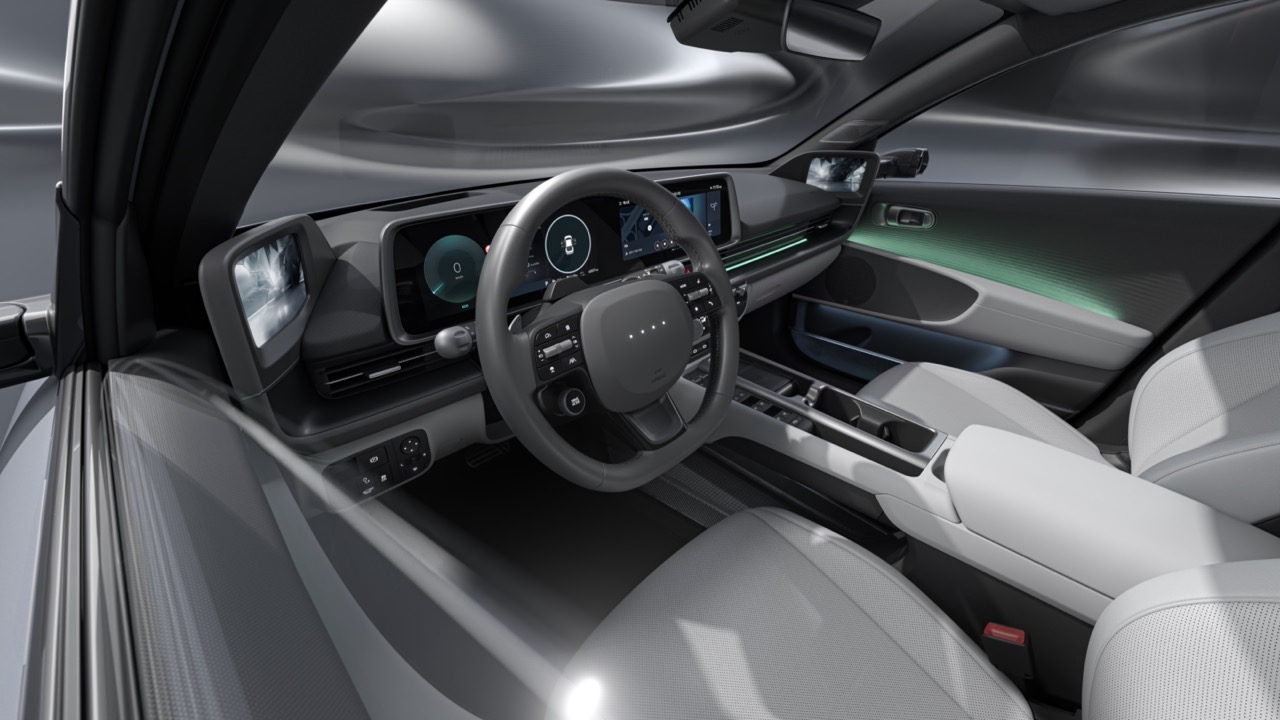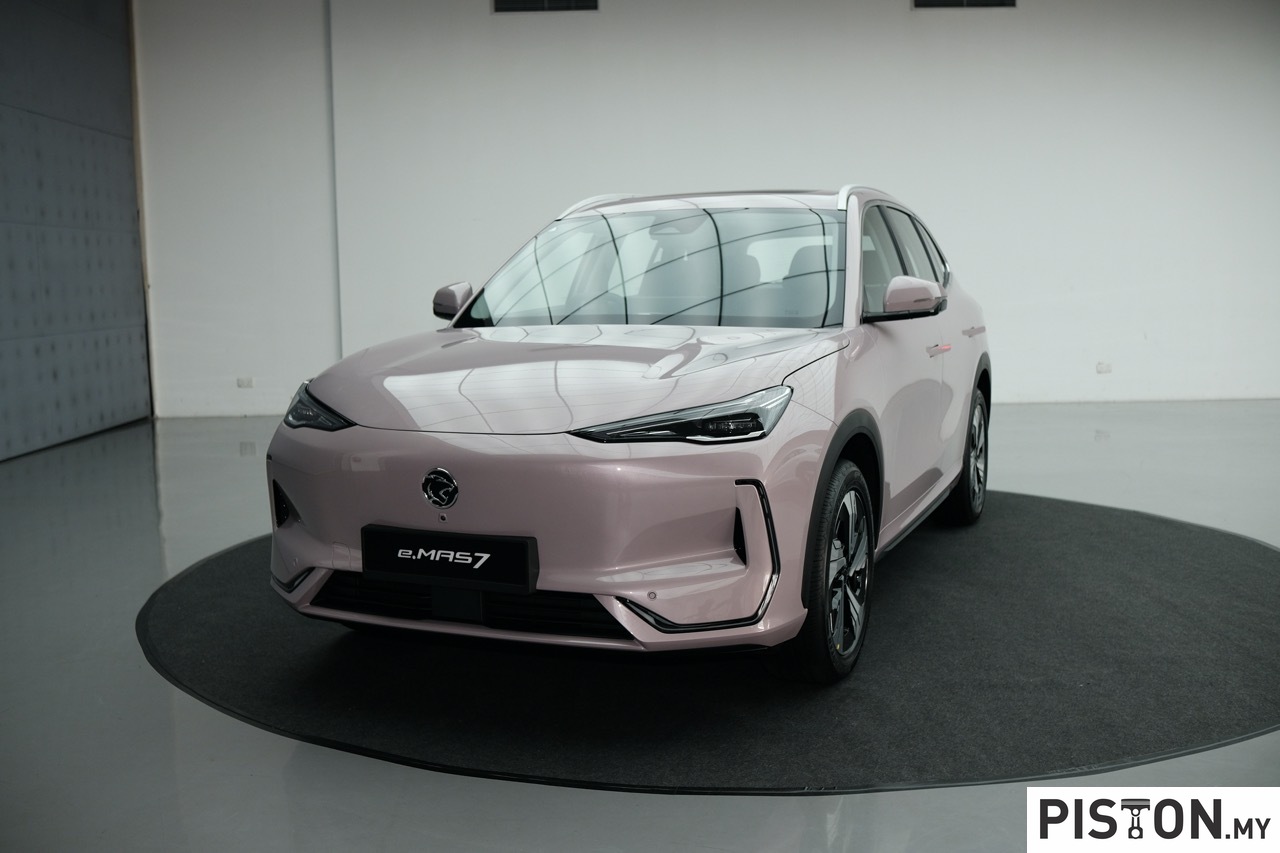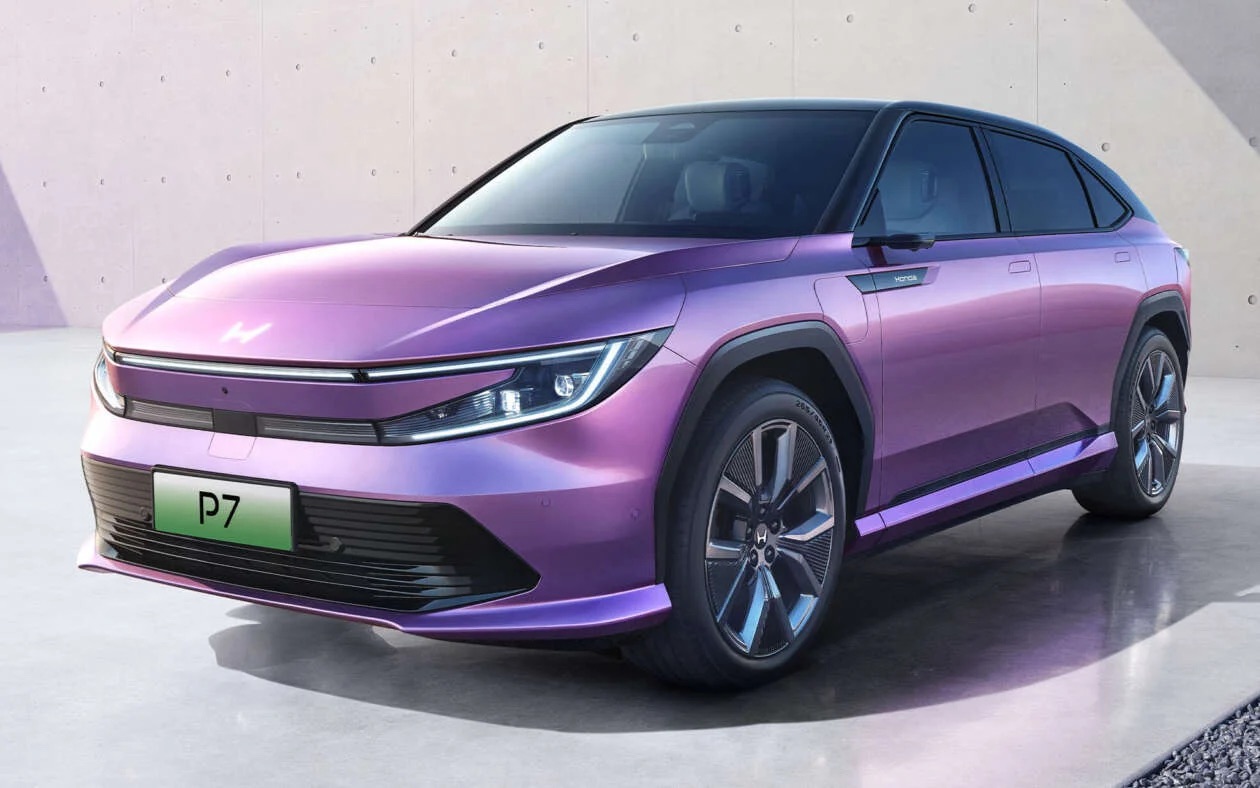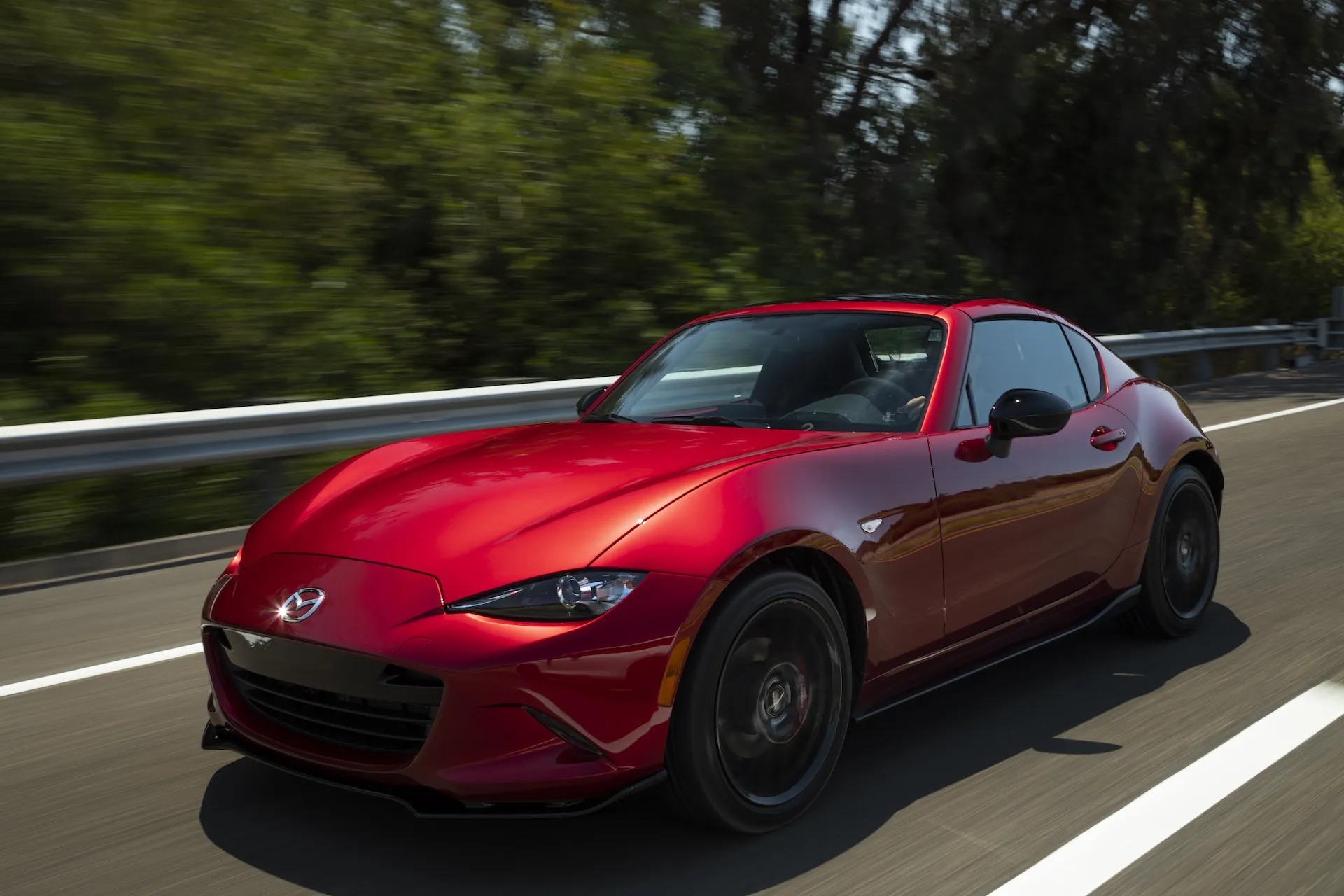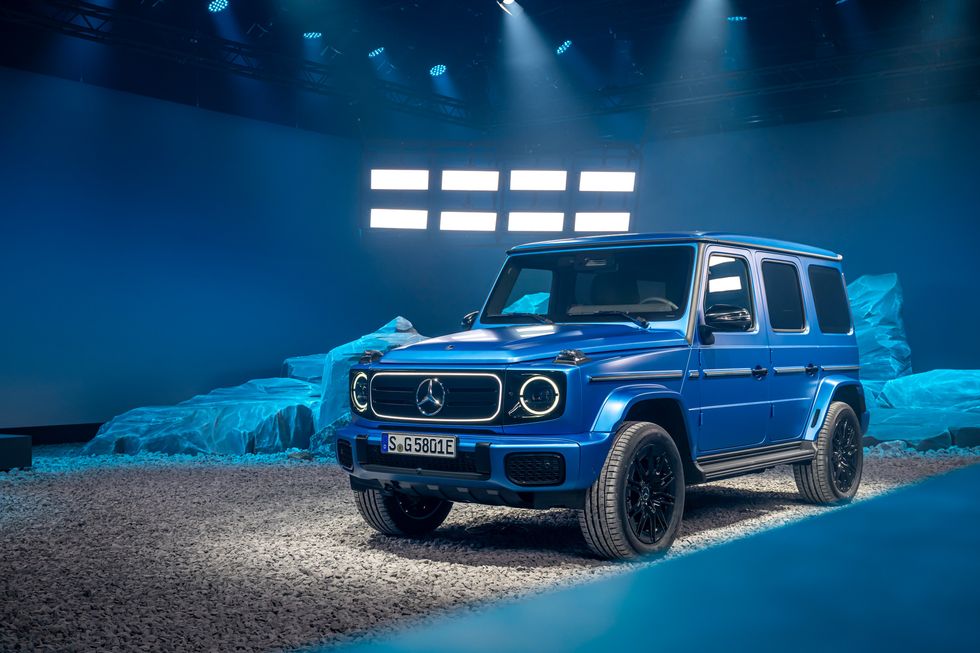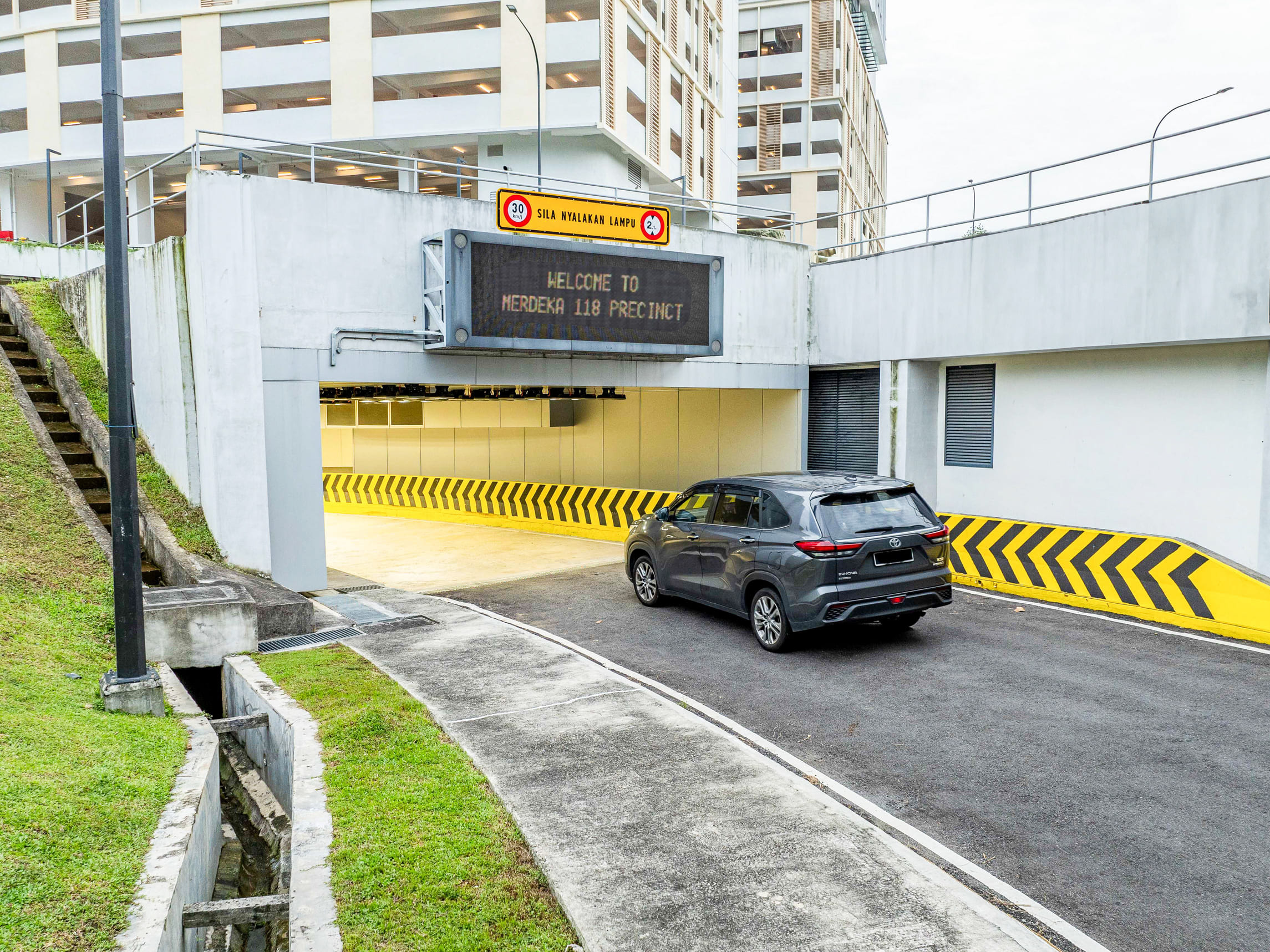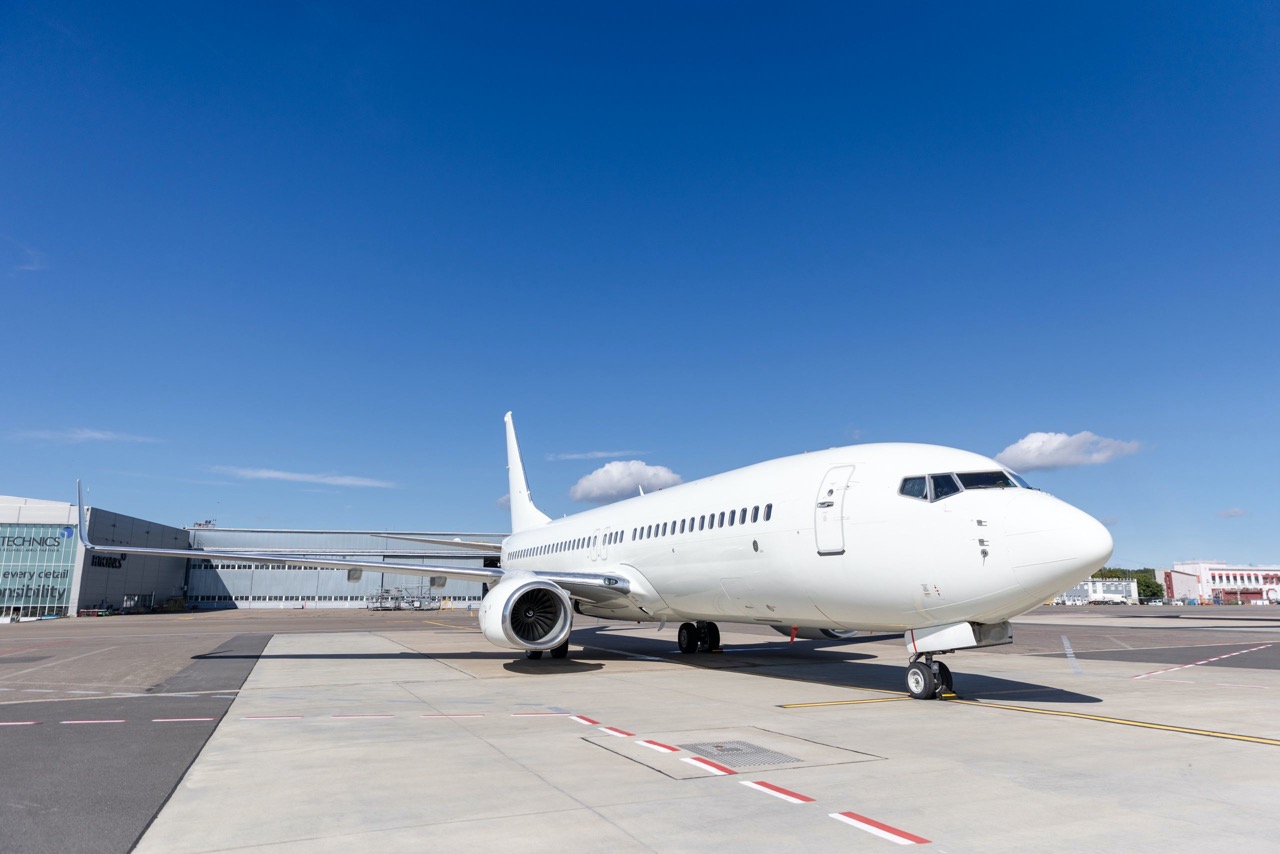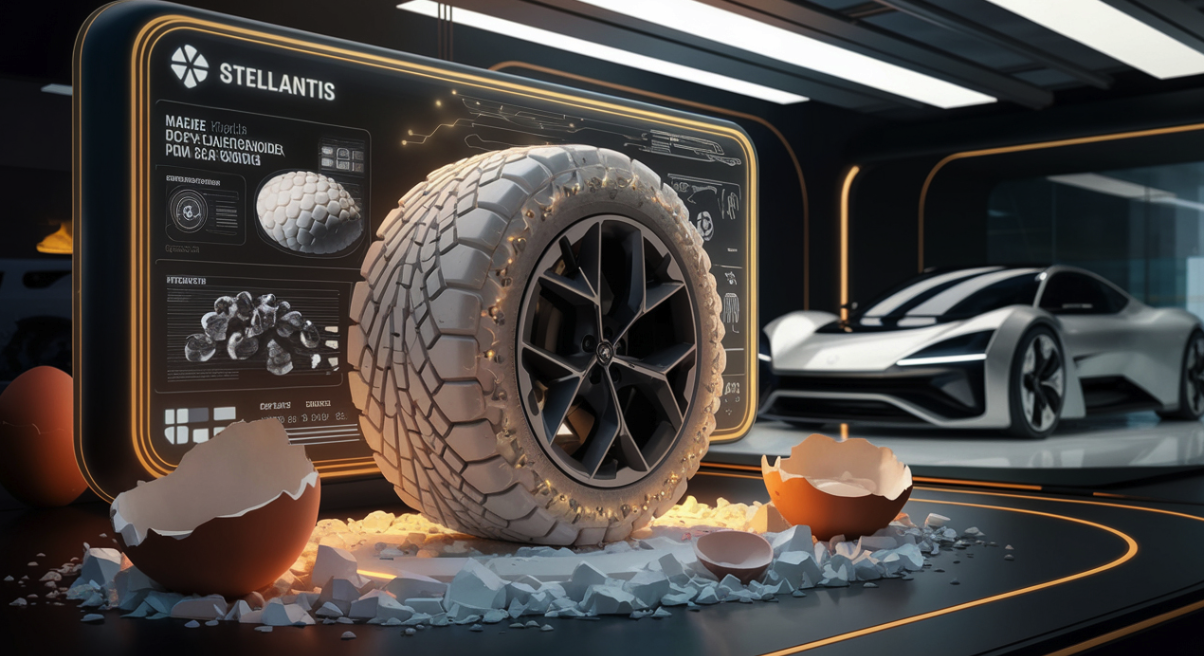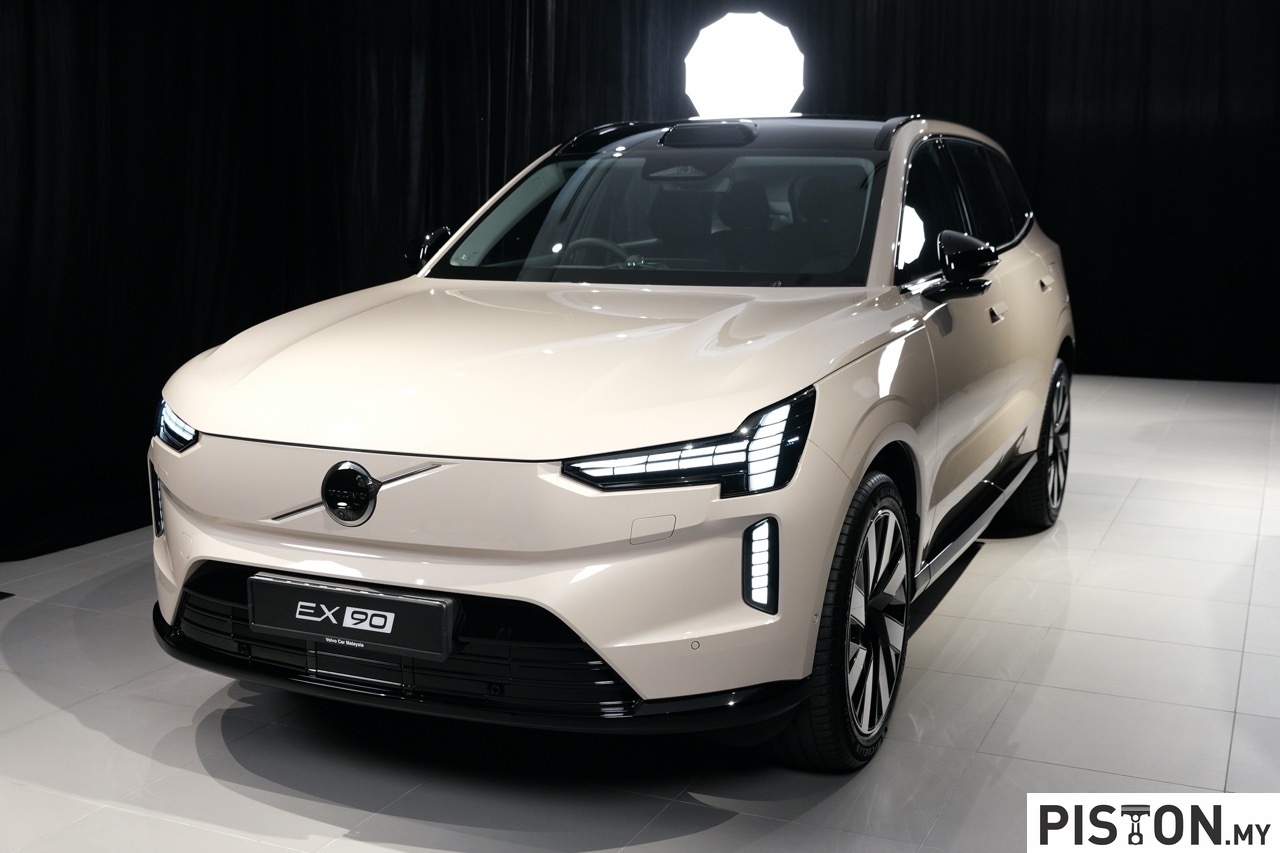When the Audi RS Q e-tron started the 2022 Dakar Rally, there were many unknowns for the Audi Sport team. Audi Sport is no stranger to tough off-road racing – having been successful in the World Rally Championship in the 1980s with its Quattro – but the rallycar for the Dakar Rally was something entirely new. It ran primarily on electricity, something they had not done before in off-road competition.
Though the team did not win on that first attempt, it claimed 4 stage victories but more importantly, the experience helped the engineers improve the prototype rallycar in many areas. “We learned a lot at rallies and tests in our first year and implemented everything consistently – technically, logistically and organizationally. The close cooperation between Audi Sport, drivers, co-drivers and Team Q Motorsport is paying off and running very smoothly,” said Uwe Breuling, Head of Vehicle Operations.
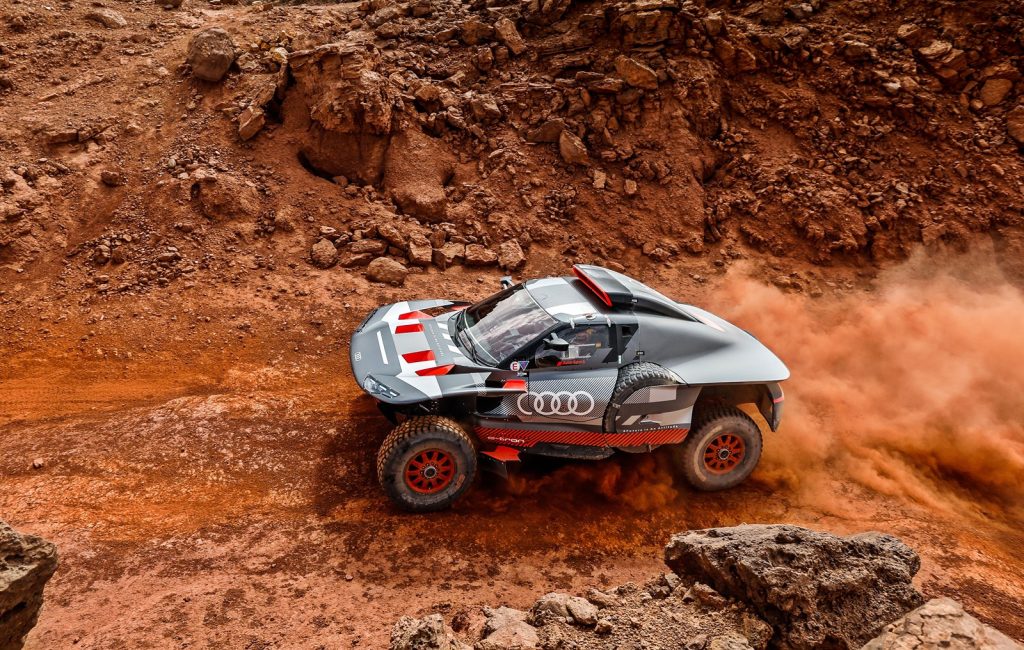
With the changes and improvements, especially to the electric drive, energy converter and high-voltage battery, the team is aiming for a podium result in the 2023 Dakar Rally which starts on December 31, 2022.
The event will again be in Saudi Arabia, with wider coverage of the desert kingdom having 14 stages after the prologue. At 350 to 500 kms, the stages between the Red Sea and the Persian Gulf are longer and more difficult than before. 70% of the route is new to the teams, and the Empty Quarter is particularly demanding.
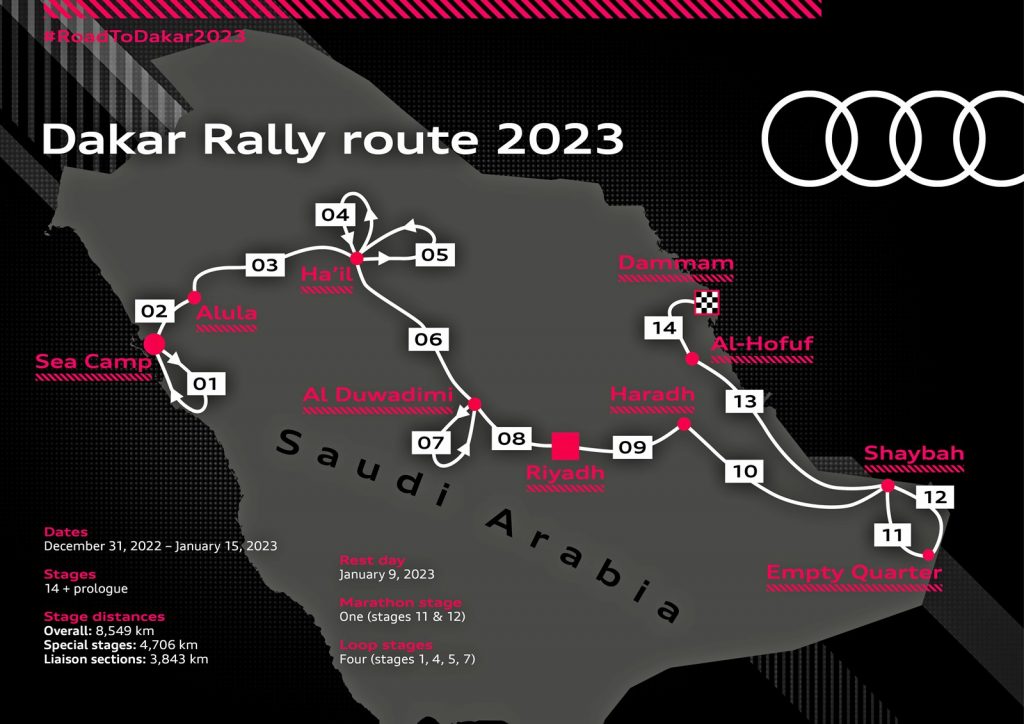

“Our car is now very reliable. The improvements compared to the first-generation RS Q e-tron are significant. Our processes are much more well-rehearsed as well. Our goal is a podium position. We’ve prepared as thoroughly as possible, but all external factors remain unpredictable. We won’t experience them until the Dakar itself,” said Rolf Michl, Head of Motorsport at Audi.
The significantly improved second evolution of the Audi RS Q e-tron for the three crews is homologated in the T1-U category, which has been paving the way to a low-emission future in cross-country rallying since 2022.
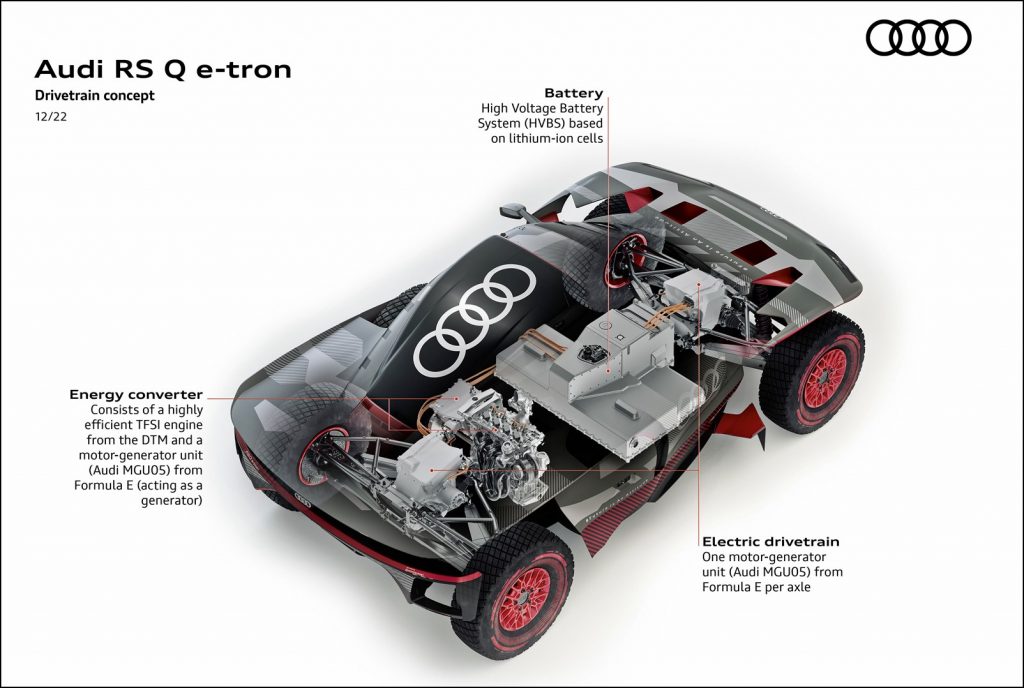
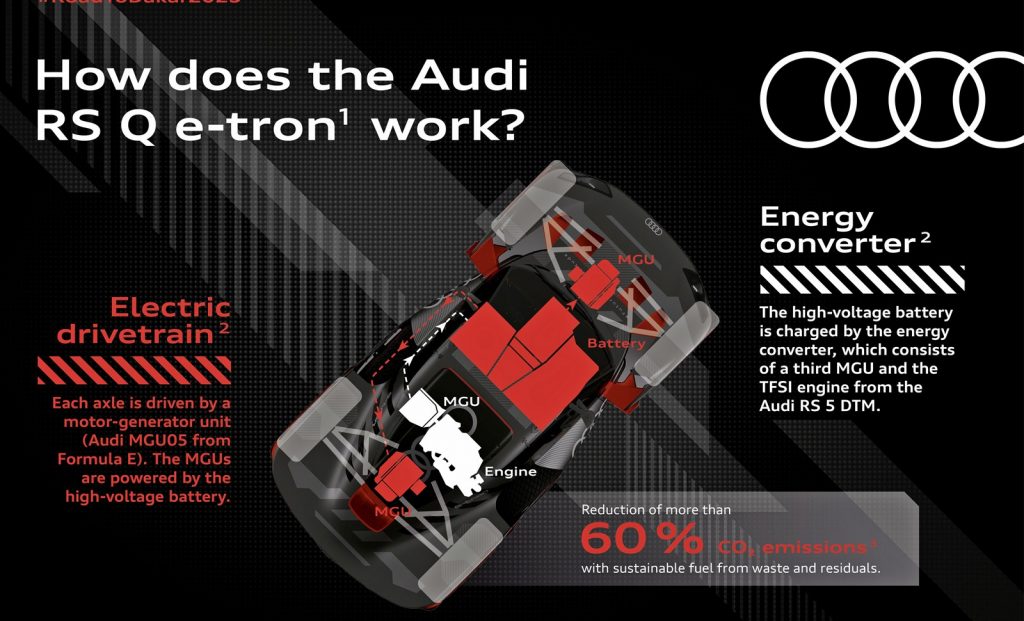
The front and rear axle drive is electric, with the electric engines getting their energy from a high-voltage battery. A revised control system optimizes the energy balance of various systems. A highly efficient energy converter consisting of a 4-cylinder turbocharged engine and an additional motor-generator unit (MGU), which runs in the optimum operating window and charges the battery, processes reFuels for the first time. Based on biogenic plant parts that do not compete with food, they help reduce CO2 emissions by more than 60%.
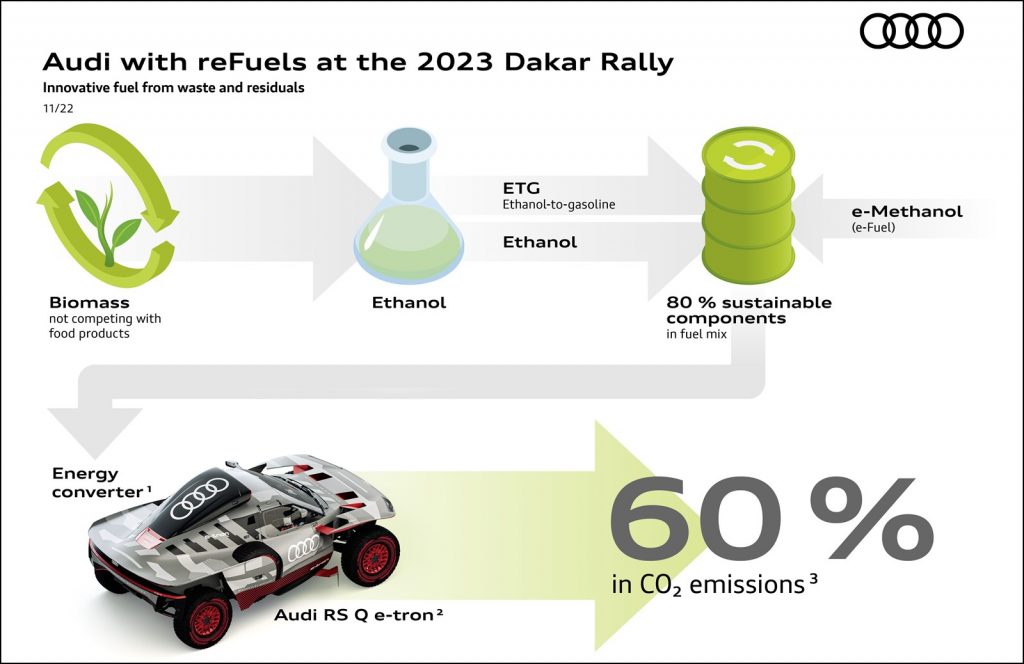
The tank content of the RS Q e-tron consists of 80% sustainable components, including ETG (ethanol-to-gasoline) and e-methanol. This fuel is required by the energy converter, whose combustion engine part operates with high compression and thus very efficiently to supply electricity for the electric drive. So while the drive concept in principle already requires less fuel than conventional systems, there is now a further optimization.
This development, driven by Audi, complies with the strict chemical specifications of the FIA and ASO fuel regulations. They are similar to the regulations for commercially available fuel grades with 102 octane. Such a high value guarantees the anti-knock properties of the fuel-air mix during the combustion process. With this innovative fuel, the combustion engine even achieves slightly higher efficiency than with fossil-based gasoline. However, the oxygen content in the reFuel reduces the energy density of the fuel, which is why the volumetric calorific value drops. The RS Q e-tron therefore requires a larger tank volume. Of course, this does not give the vehicle a regulatory advantage, because fuel flow meters determine energy consumption with maximum precision in the interest of equal opportunities among the participants.
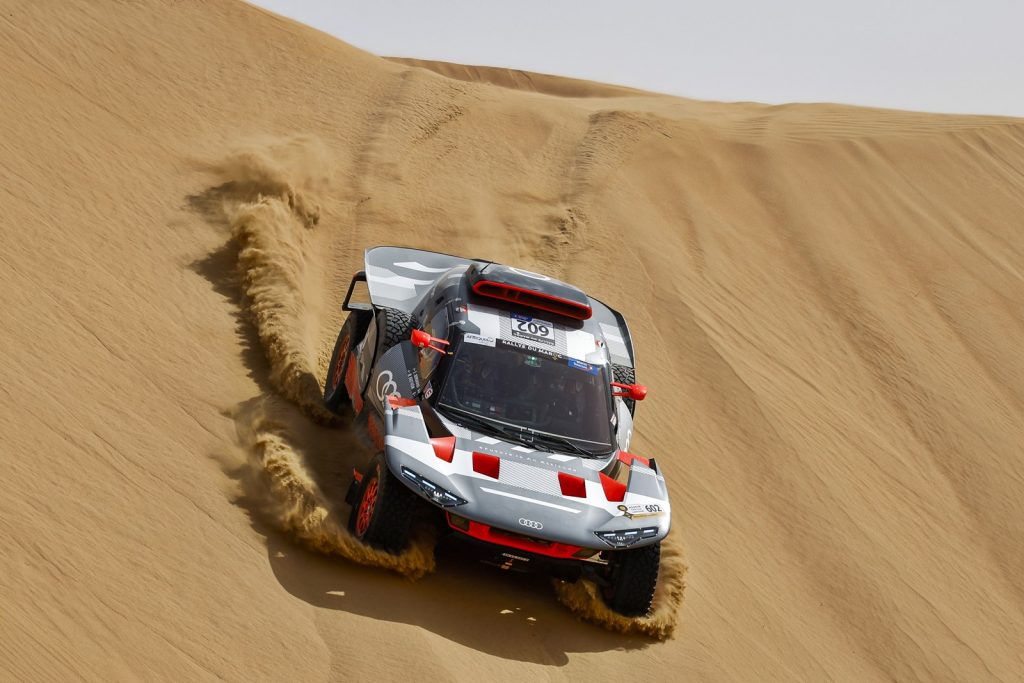
During extended tests and a rally in October, the second generation of the RS Q e-tron demonstrated reliability and performance. Besides testing the cars extensively, the drivers and co-drivers also received training in the use of technology so that they can help themselves in the event of damage during the stages. With 15 days of competition, just one bad day can mean lost opportunities.
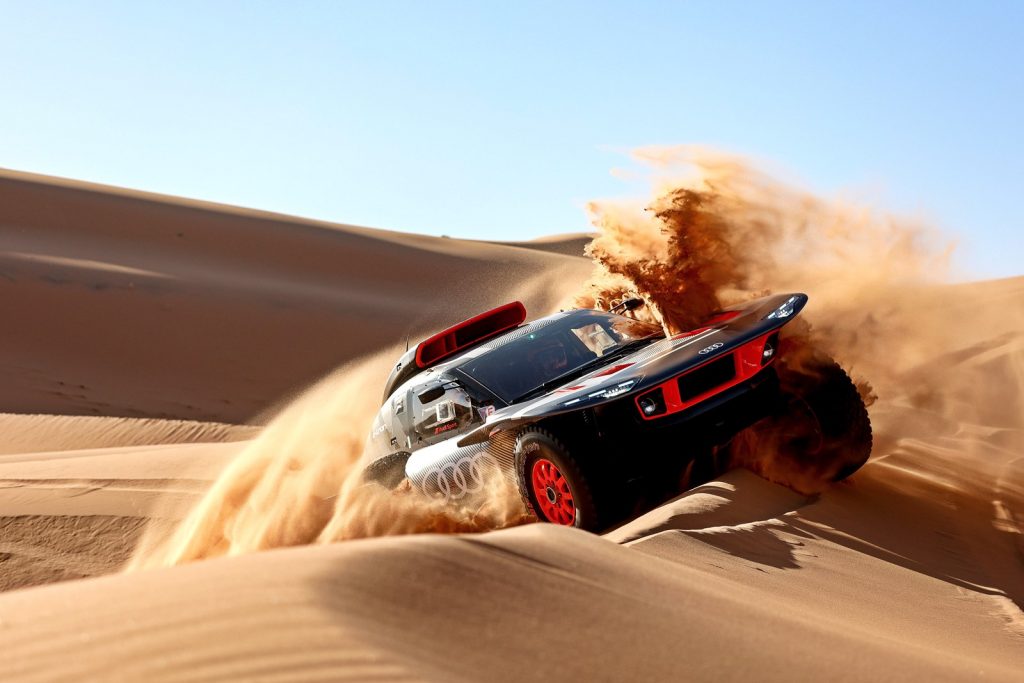
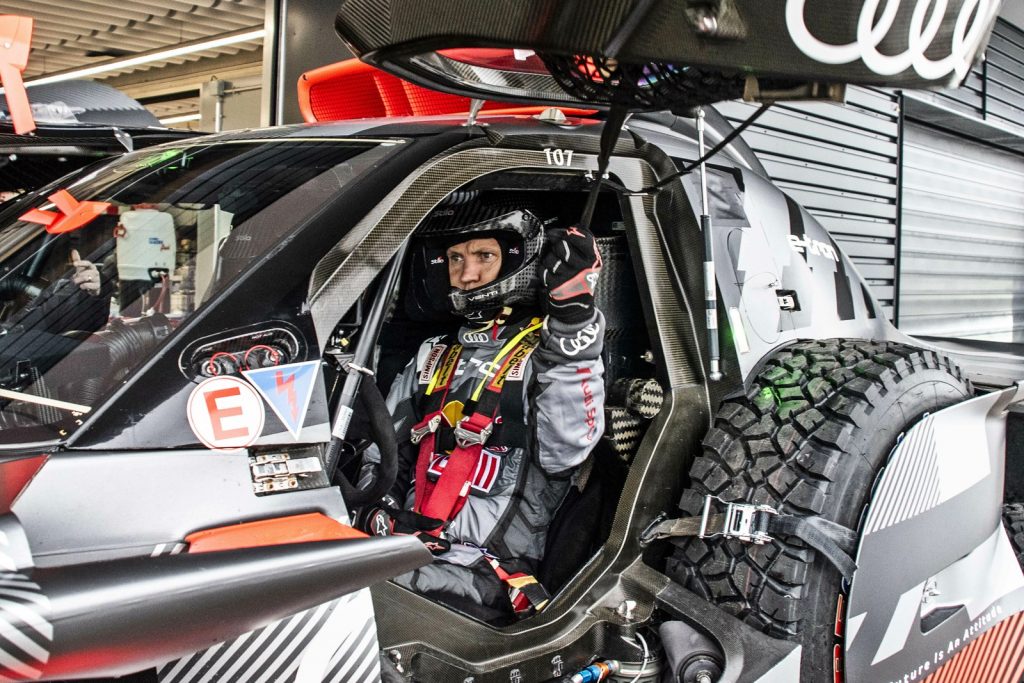
“The details in the cockpit, our set-up plans, the instructions, practicing the tire changes, the search for the optimum: we really went about our work thoroughly. Detailed decisions on the choice of springs, for example, we make depending on the route, whether we’re more likely to drive on stony ground or in sand,” said Mattias Ekstrom (above), who finished highest among the Audi drivers at ninth place.
For 3-time Dakar winner Carlos Sainz, the focus is on the team’s noticeable development in a very short time. “You can’t compare the current situation with that of the 2022 Dakar Rally. The experience with the new car helps a lot, so our goals are also changing. Before, we were cautious, and now we hope we can race for the top. The biggest challenge remains the Dakar itself. Every day holds surprises,” he said.
